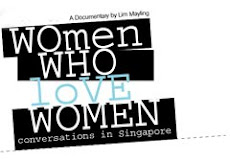Eight months before the Stonewall Riots - our LGBT call to freedom from police, political and religious oppression - Rev. Troy Perry invited 12 friends on the quiet Sunday morning of Oct. 6, 1968, to his small
So began the first
A clarion call that God's love includes gays, lesbians, bisexuals and transgendered people spread from city to city across
Now, 35 years later, MCC-Detroit - with a membership nearing 200 - is celebrating its founding with dinners, a dance and Sunday services with Perry preaching, as he says, "the good news of inclusively; the sharing of God's spiritual grace for all, regardless of race, color, creed, age, gender or sexual orientation."
At 67, Perry, who retired as Universal Fellowship of Metropolitan Community Churches' founder and moderator in 2005, is as busy as ever. Perhaps busier.
The former Baptist preacher (ordained at age 15) turned Pentecostal evangelist, turned "God's Gay Liberator" - as well as the author of several books, including longtime best-selling autobiography "The Lord in My Shepherd and Knows I'm Gay," and religious advisor to two White House presidents on four occasions for AIDS-related issues and hate crimes - recently was honored with a Doctor of Divinity degree from the Episcopal Divinity School, Cambridge, Mass. It was his third such degree.
He also recently returned from
Those who have heard Perry know he's a dynamic, charismatic preacher, a power-house speaker. "The Billy Graham of Gay Liberation," some have dubbed him. He's also a tireless human rights advocate (Fellowship churches are now known as Human Rights Churches); an outspoken believer in safe, adult sexual freedom; and a supporter and member of the leather community.
Like MCC-Detroit's pastor Rev. Mark Bidwell, Perry was married, divorced, has two children and, as a young man, was kicked out of his home church for his homosexuality. It was a traumatic experience for both men.
In 1969, Perry performed the first same-sex marriage in
Asked about the founding of the first
"It would have to be a church that most could understand and easily identify with and accept diversity as not being unusual or odd," he continues. "It seemed to me that it should be traditional, almost like those churches attended in childhood, not too different from that."
His fledging church took out an ad in the Advocate, a small paper in the area, and received great coverage. While the new church was news in the gay community, most mainstream papers ignored it, Perry says - especially religious columns. Yet people kept flocking.
"We were still holding services in my home and my house was bursting at the seams," he recalls. "We were looking for another place. We needed help on all fronts. I needed other theological minds to shape the way things were developing.
"It seemed nothing could stop us. We all felt the thrill of discovery - a new Pentecost outpouring - and the occasional clumsiness of growing pains. We knew that we stood on the threshold of great things. People came out of the shadows, out of the closets, out of the half-world."
It seemed they were drawn to the faith community. The talent flowed in: Pianists. Choir directors. "Family members - like my own dedicated and supportive mother," Perry adds.
"Our church provided a feeling of freedom to worship. We knew that we were on God's side because God loved us, too. We excluded no one. We welcomed all. We still do."
Heterosexuals came to the first services, he says; they still do today, comprising at least 20 percent of the congregation. Worldwide, there are 300 congregations in 22 countries and a membership of more than 250,000. It all amounts to an annual income of $24 million.
"Our mustard seed of faith has becomes a sheltering tree of strength, political activism, and spiritual solidarity," he says.
Perry was part of a recent six-member delegation to
"I've had enough experiences for three lifetimes," Perry muses, "but this was the first time an entire country banned me. I was allowed to enter but told that I could speak only one-on-one with individuals." In other words: No preaching.
"But all over the world I've observed over and over: The LGBT community always finds creative ways to make our voices heard," he says. "In spite of oppression and intimidation, we always find ways to get out the message that all people deserve equality under the law, that all of God's children - including gays, lesbians, bisexuals, and transgender persons - that all are worthy of dignity."
While the
"Of course, I answered out loud in front of the audience - so I was actually able to share far more information than if I had preached a half-four sermon," Perry says. "There's a saying that when a door closes, God opens a window. When
Rev. Perry will preach at Metropolitan Community Church of






0 comments:
Post a Comment